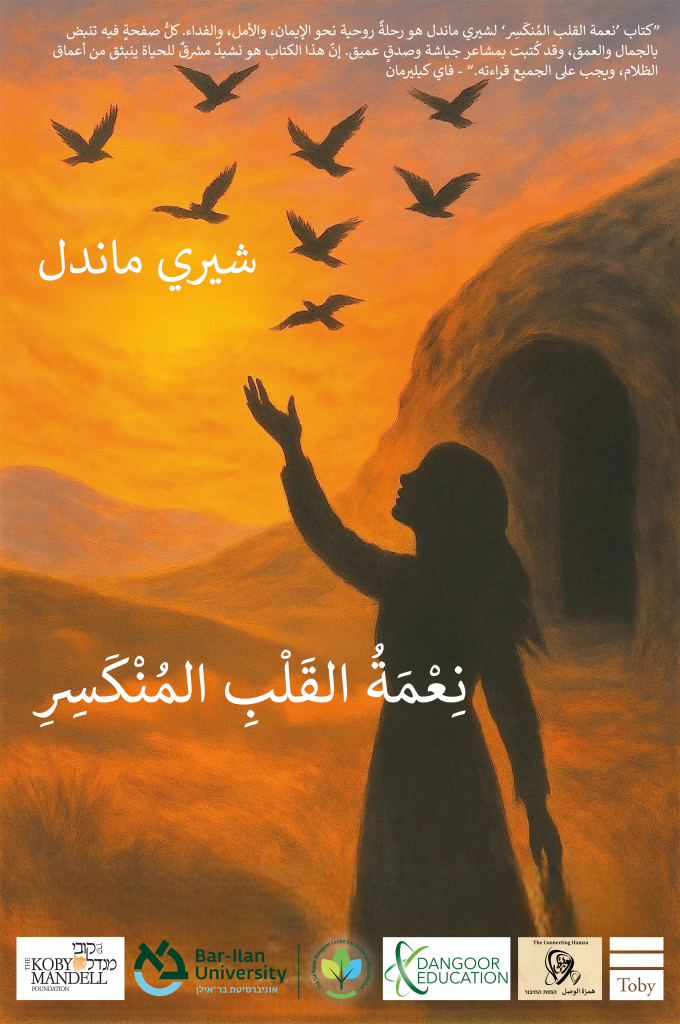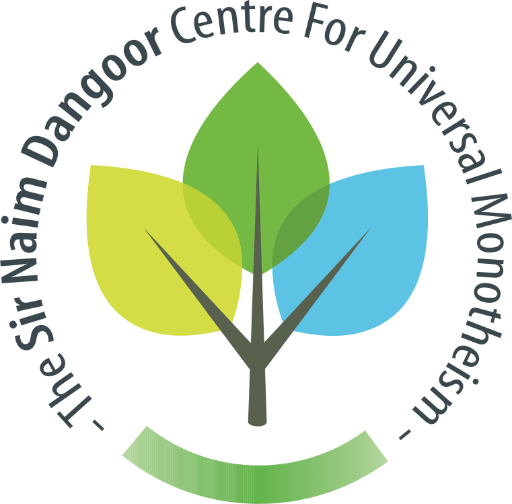A new translation added to the Dangoor Centre Arabic translation series, and is now available for reading and free download. The Blessing of a Broken Heart tells the story of the tragic death of Sherri Mandel’s son in 2001. Kobi Mandel and his friend Yosef Ish-Ran, aged 13-14, were brutally stoned to death in an extreme act of terror, while hiking in the valley near their home in Israel.
The Blessings of a Broken Heart is a spiritual journey of faith, hope inspiration. Kobi’s mother, Sherri has panned this absorbing, deeply painful and yet strangly beautifual account of her loss, sharing her thoughts and emotions as she moves through the first stages of mourning.
See below for excerpts from the Book Review by Francisco J. Bernal.
For the full review see:
https://danielclarkeserret.substack.com/p/the-blessing-of-a-broken-heart
A Book Review by Francisco J. Bernal
I read The Blessing of a Broken Heart in the year after the October 7th massacre in Israel, when the country was grieving once again, for entire families torn apart, for children, parents, and grandparents murdered or kidnapped. In that raw and heart-wrenching time, Sherri Mandell’s words felt like they were written not just in the past, but for this very moment. Her story helped me begin to grasp the depth of pain so many were living through, and offered a glimpse of how, even in the face of unthinkable loss, one might choose to live, to love, and to build again.
I enter Sherri Mandell’s rituals, the shiva, the prayers, the seven days marked and measured, as a respectful outsider. I am aware that I do not share the faith that shapes these acts, but the grief beneath them does not feel foreign to me. Each tradition, each symbol, like the tearing of a shirt in mourning, sitting on low chairs, lower than the visitors who come to comfort, invites me to reflect on what my own ways would be to cope with loss. Perhaps I would cling to an object, a scent, or a phrase, as small anchors of remembrance. What Sherri receives from her tradition is not easy comfort, but a way to mark sacred time when everything else has fallen apart. It is like choreography for the hands when the heart no longer knows what to do.
One of Sherri Mandell’s most radical decisions is not to let hatred speak the loudest. To name the horror, but not become an instrument of rage, not to seek vengeance. I do not know if I could do the same. I know myself. If something like that were done to the person I love, my anger would be a fire uncontained. I would want to shout, to point out culprits, to destroy the very thing that destroyed mi vida.
But Sherri does not do this, and her refusal, far from passive, is a form of resistance. She does not forgive, she does not forget, but neither does she give herself over to bitterness.“I will not surrender to despair or anger […] If I give in to anger and hate, then I become one of the haters, a parasite who lives on fear and hate. If I live only to seek revenge, then they have won; they have destroyed me.”
The image that runs through the book is that of a broken vessel, which though cracked, can still hold. A vessel that does hide its damage but makes it part of its shape. Sherri Mandell does not speak of healing as going back, but as rebuilding. And that, to me, says everything. The pain does not go away yet love does not either. And the soul, though shattered, still shines.
I read as an outsider, not from the world of Jewish faith or ritual. I am not religious nor do I pretend to possess a faith like hers. I wish I did. I did not grow with those symbols or inherit those prayers. But reading her, something in me understands that losing the one you love does not have to mean losing everything. That it is possible to gather the fragments, to give them names, and make space for them. And that this act, so immense and so difficult, is already a way of continuing to love.“We ourselves are vessels, filled with Godliness. And though we may chip and crack, our souls are whole even when we aren’t.”“God himself seeks out broken vessels for use (Leviticus Rabah 7:2). As it says in Psalm 147, verse 3, “God is the healer of shattered hearts”.
I finished reading the book with a heaviness in my chest, knowing I can no longer look at grief the same way. But in that shift, between what hurts and what endures, I discovered an unexpected tenderness, the sense that sometimes to resist is simply to go on loving, with a new heart, shaped by grief and loss.“Many of us live with broken hearts. But when you touch broken hearts together, a new heart emerges, one that is more open and compassionate, able to touch others, a heart that seeks God. That is the blessing of a broken heart.
The Arabic translation is part of the work of The Connecting Hamza, an NGO that brings Jewish and Israeli texts to Arabic-speaking readers.

